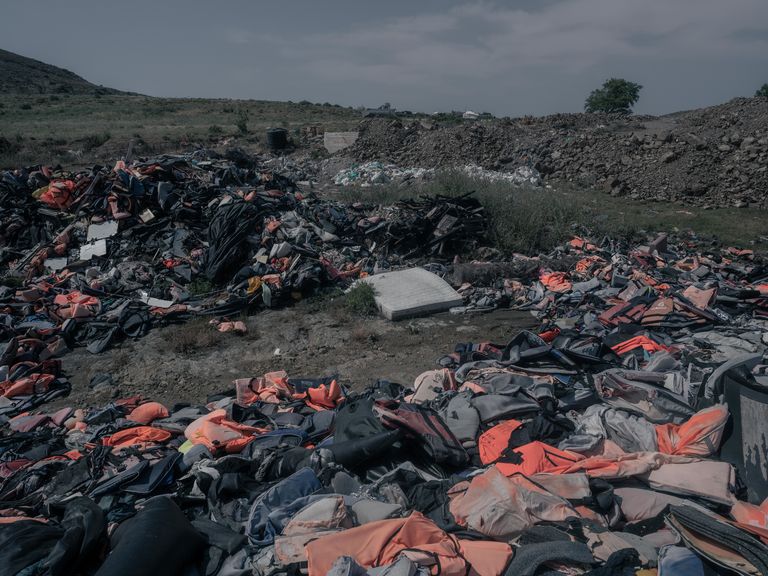Project Detail: REACHING FOR DUSK
Contest:
Swiss Storytelling Photo Grant 9th
Brand:
LuganoPhotoDays
Author:
Stefanos Paikos
Project Info
REACHING FOR DUSK
The path of the nameless
In 2020, during the Covid-19 pandemic, I developed the idea for a project that deals with the experiences and perspectives of refugees. Given the reporting on the refugee situation in Europe, particularly after the fire at the Moria refugee camp in September 2020, I wanted to explore how these people made it to Europe and what happened at the borders of the European Union. This led to the long-term project "REACHING FOR DUSK," which traces the refugee route from Greece through Turkey and Iran to Afghanistan.
In 2021, I visited the island of Lesbos, where I documented the living conditions in the new Kara Tepe camp after the fire in 2020. With the help of my Greek citizenship and language skills, I was able to enter the camp and take photographs. I also wanted to capture the Greek population's handling of current crises such as the refugee crisis, the coronavirus pandemic, and the economic crisis.
In 2022, I expanded my project to Turkey, where I documented the situation of refugees in border cities like Van, Assos, Edirne, and Istanbul. In Assos, I discovered the "Refugee House," which serves as a temporary shelter for crossing to Lesbos. In Van, I focused on the "Cemetery of the Nameless" and interviews with border police officers to get a detailed picture of the challenges faced by refugees on their way to Europe.
My journey ended in the border city of Edirne on the Evros River, where people still die today trying to reach the European Union. During my stay in Turkey, I spoke with residents about the current situation in the country, particularly the upcoming elections, hyperinflation, and the political influence of Recep Tayyip Erdoğan. Through photographs and interviews with people from all walks of life, I aimed to provide a comprehensive picture of the realities of refugees on their way to Europe and make it accessible to the public.
In January 2023, I met Milad Ebrahimi, an Iranian with Afghan roots, known for the film "A Short Story of Moria." Moderated by Joko Winterscheidt and Klaas Heufer-Umlauf, the film about the Moria refugee camp on Lesbos reached millions. Milad, born in Karaj, now lives in Hamburg.
We met to talk about Milad's life story and his journey from Iran to Germany. The ordeal left its mark. Milad, a slender man with gentle facial features, speaks carefully about his memories and seems as if he would rather forget the experience.
In Iran, Milad never felt accepted. Racist humiliations drove him to flee to Germany. He chose the dangerous route through the Vandoğusu Mountains and paid smugglers to bring him and 40 others across the border. The journey took four months, during which Milad often slept in train stations, police stations, or on park benches. The escape cost about 2000 to 3000 dollars in total.
In Istanbul, Milad needed four attempts to reach Lesbos. There, he did not find the hoped-for better life. Today, he shares a 14-square-meter room in Hamburg and waits for the verdict on his asylum application.
My photo project aims to capture a comprehensive and detailed picture of the living conditions and challenges faced by refugees on their way to Europe and make it accessible to the public. By combining my photographs and stories like Milad's, I want to raise awareness of the refugee situation and show the human side of the refugee crisis.
The project will continue in Iran and Afghanistan, journeying through cities like Tabriz, Tehran, Yazd, Zabol, and ending in Kabul - a 5,500 km trip. This photo project aims to depict the reality of refugees' lives and challenges en route to Europe. By sharing photographs and stories, I hope to raise public awareness and reveal the human aspect of the refugee crisis.


















